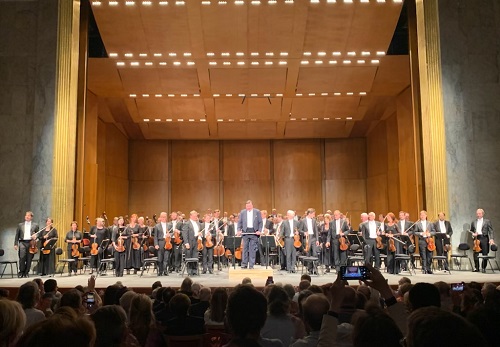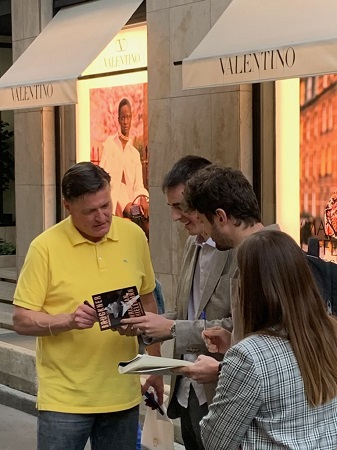 France Bruckner, Symphony No.9: Staatskapelle Dresden / Christian Thielemann (conductor). Théâtre des Champs Élysées, Paris, 6.2.2022. (LV)
France Bruckner, Symphony No.9: Staatskapelle Dresden / Christian Thielemann (conductor). Théâtre des Champs Élysées, Paris, 6.2.2022. (LV)

When Christian Thielemann walked through the ranks of the Dresden Staatskapelle to take the first of many curtain calls from an adoring audience for the relentlessly powerful performance of Bruckner’s Ninth Symphony he had conducted, he attempted to leap onto the podium in a show of boyish enthusiasm but slightly misjudged the distance and nearly came a cropper. Although he did not break an ankle or worse, it reflected a view of the music that affirmed a defiant magnificence, which cast a shadow over the humility of the composer and the tragic fragility of the unfinished symphony.
Rather than being exhausted by the hour-long ordeal, Thielemann projected an air of jubilation. Bobbing duck-like and reminiscent of a kinder, gentler conductor named Josef Krips a century ago, Thielemann became increasingly more insistent in his directions to the orchestra as the third movement wore on and forward motion became increasingly static. He moderated what seemed to be a ‘when in doubt play loud’ policy by exhorting the orchestra with his hulking body, executing a series of surprisingly athletic gestures and angular body movements that included crouching and holding his right hand low to the podium, indicating a quiet beyond pianissimo. The orchestra, of which Thielemann has been chief conductor since 2009, hardly needed such instructions, but the theatricality with which he delivered them communicated itself profoundly to the audience.

There were countless things to admire in the orchestra’s playing – the extraordinary richness of their massed sound without a hint of thickness; the unflagging tremolo in the strings which so many American orchestras approach as if they were more concerned with bursitis than the essential Brucknerian rustling; the superb sounds the timpanist made, more than just pounding but real notes with actual pitches plumbing depths of improbable beauty; the magnificent playing of the cellos, whether in long-limbed lyrical lines or snapping off rhythms with razor-sharp precision, which are the lynchpins of Brucknerian movement. And if the Scherzo was unnecessarily brutal, as if Thielemann were pounding out time for galley slaves, the lovely pastoral oboe in the Trio signaled the exhilaration and temporary hope of spring.
After the concert, in the alley outside the splendid Art Deco Théâtre des Champs Élysées, Thielemann in a neon yellow shirt chatted with friends and happily signed autographs for admirers who included some of the finest young talents in Paris. In retrospect, Thielemann’s leap had been entirely consistent with the exuberant tenor of the evening but, in the process, Bruckner’s soul had taken on new spiritual dimensions.
Laurence Vittes